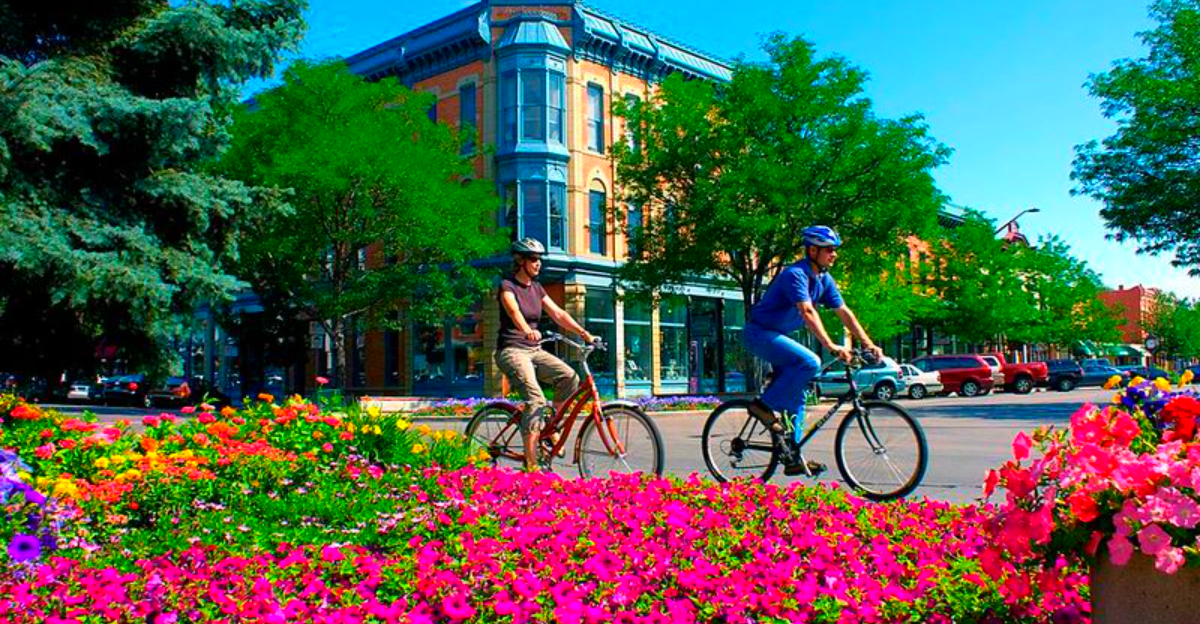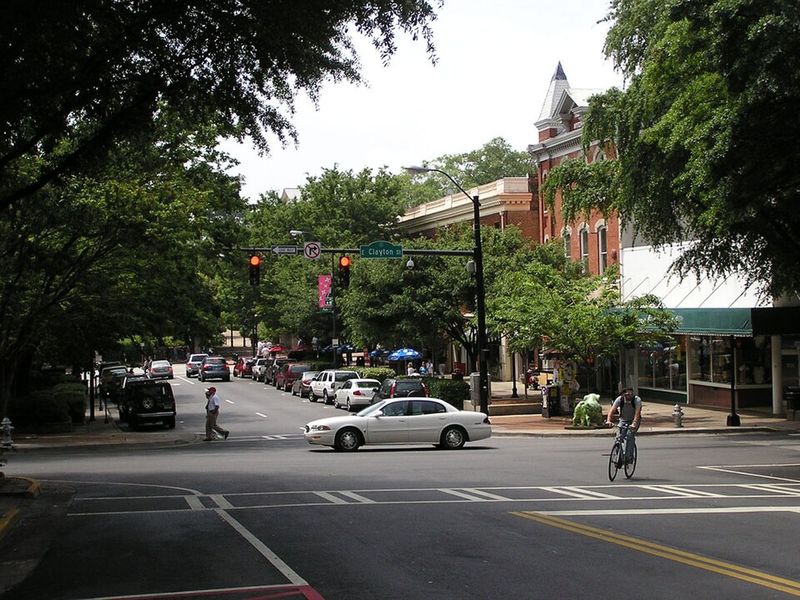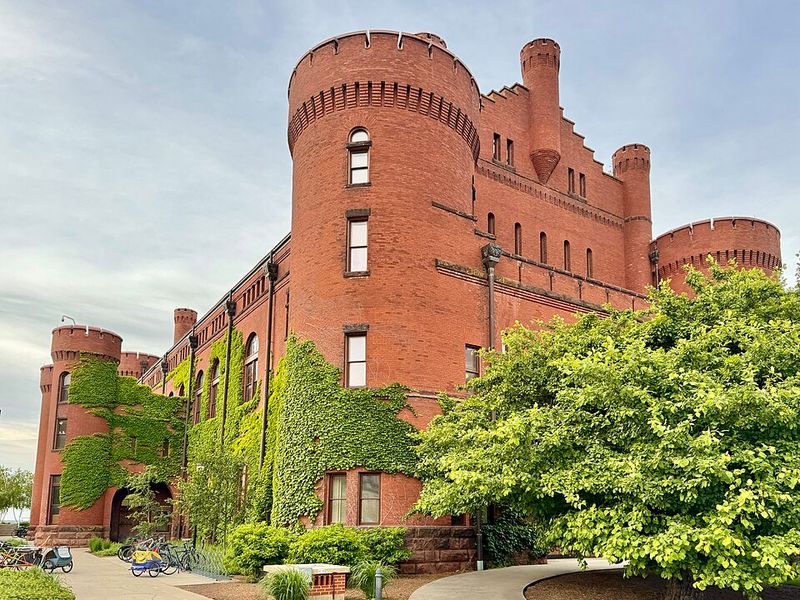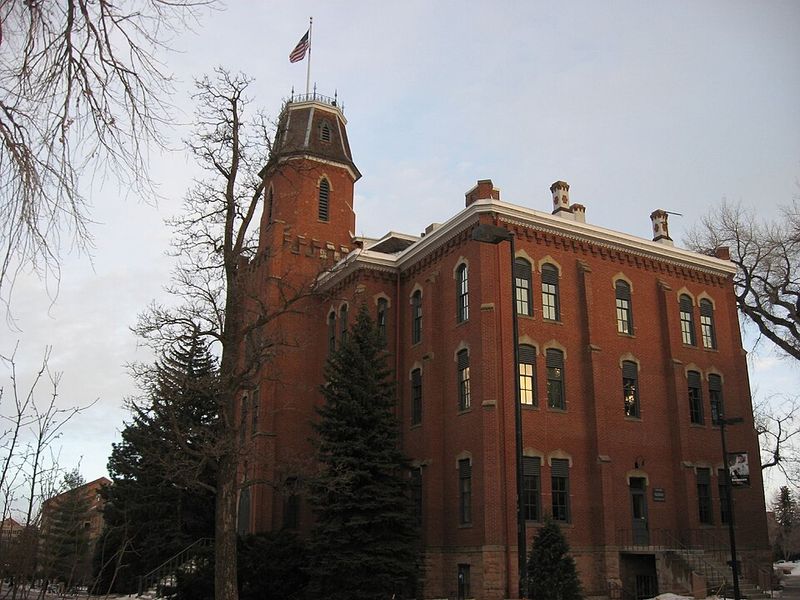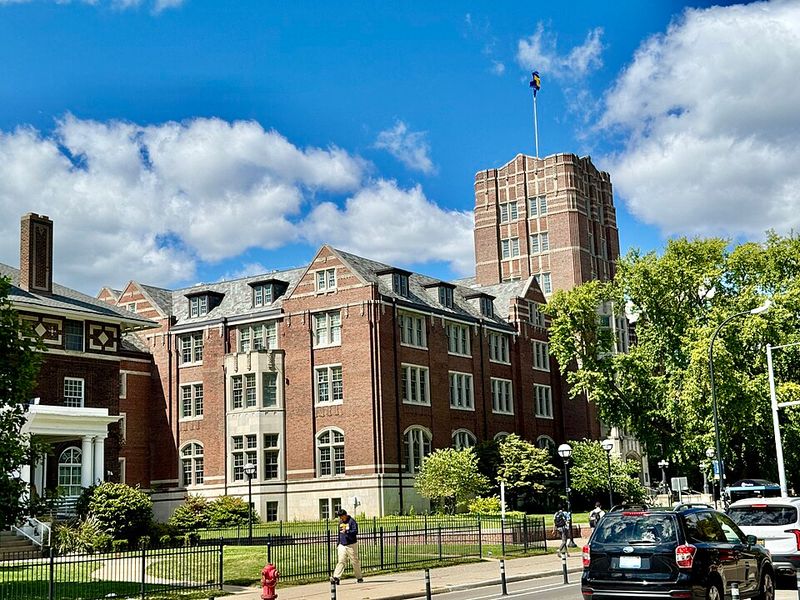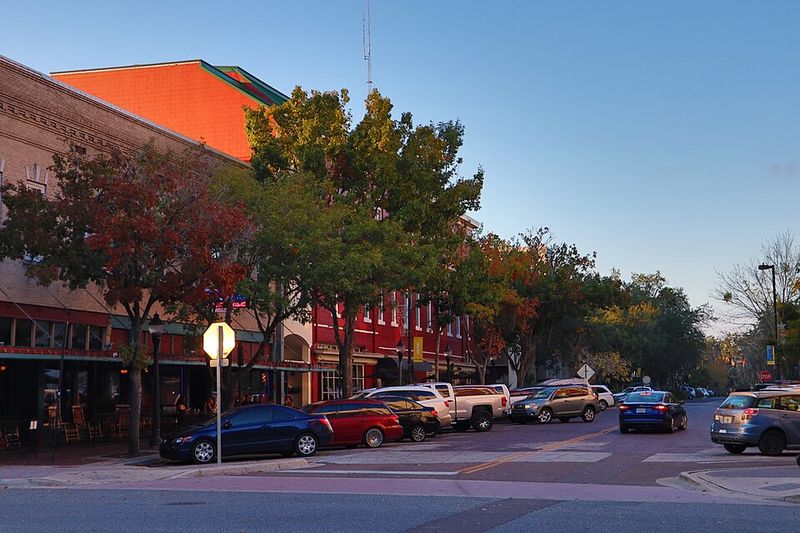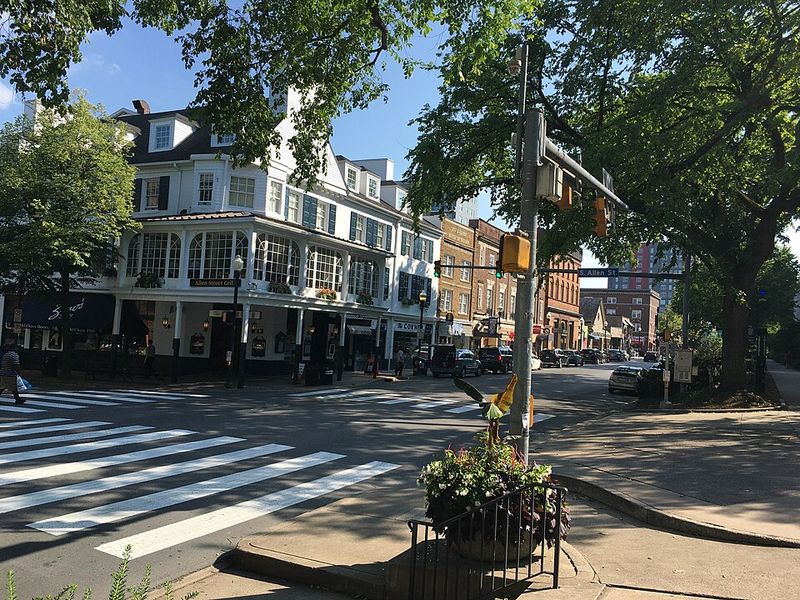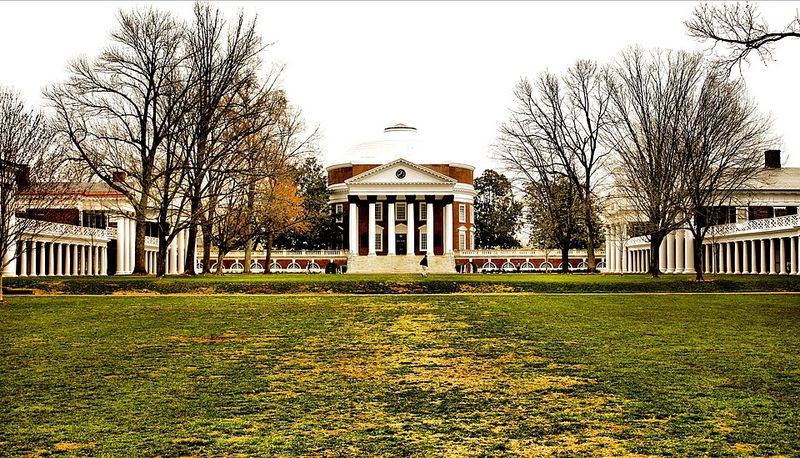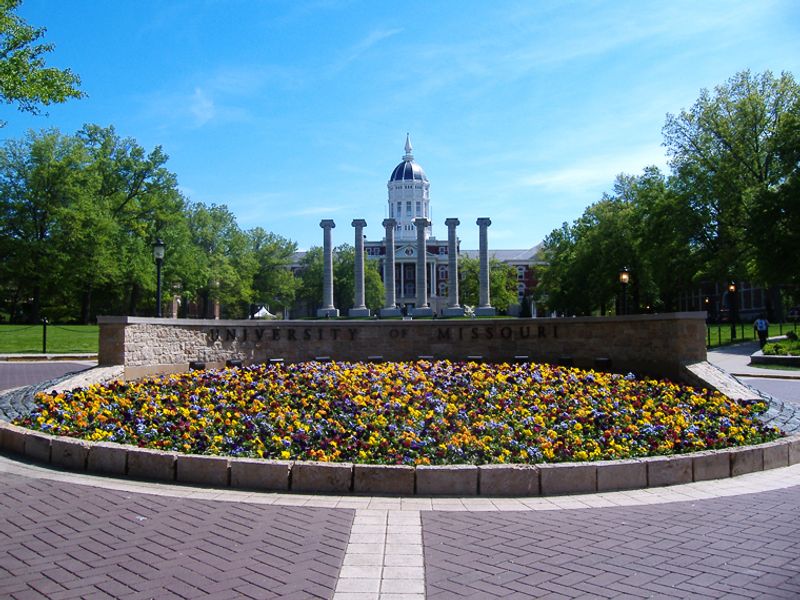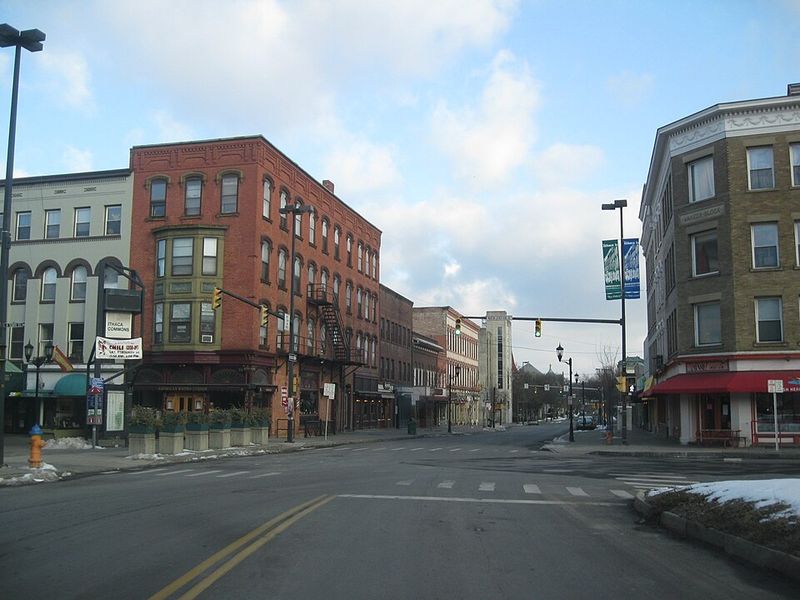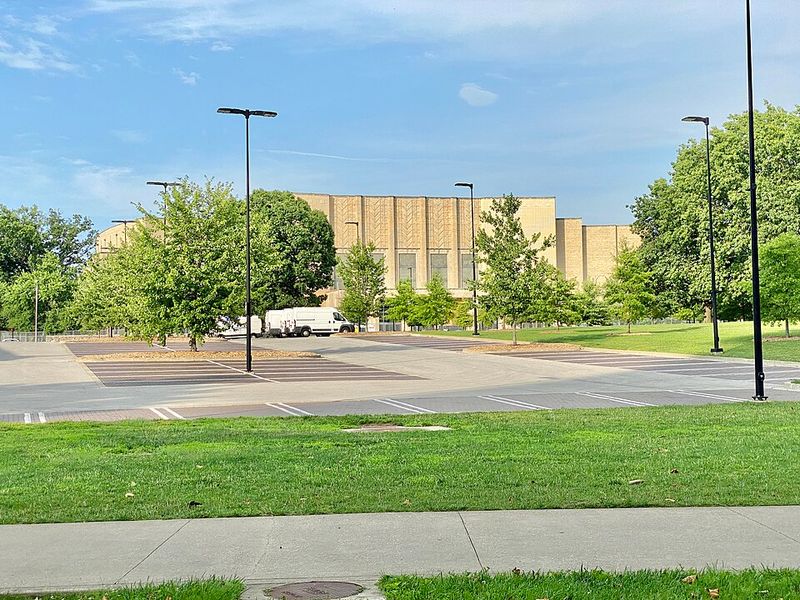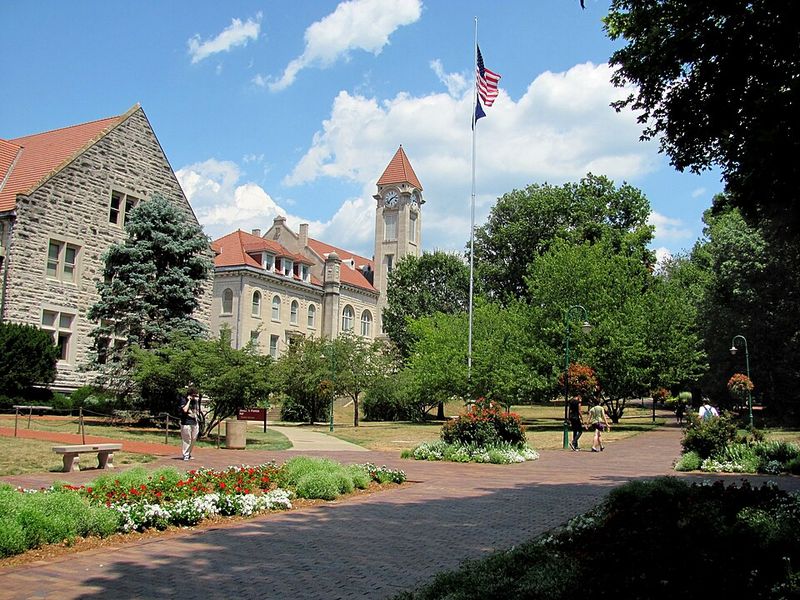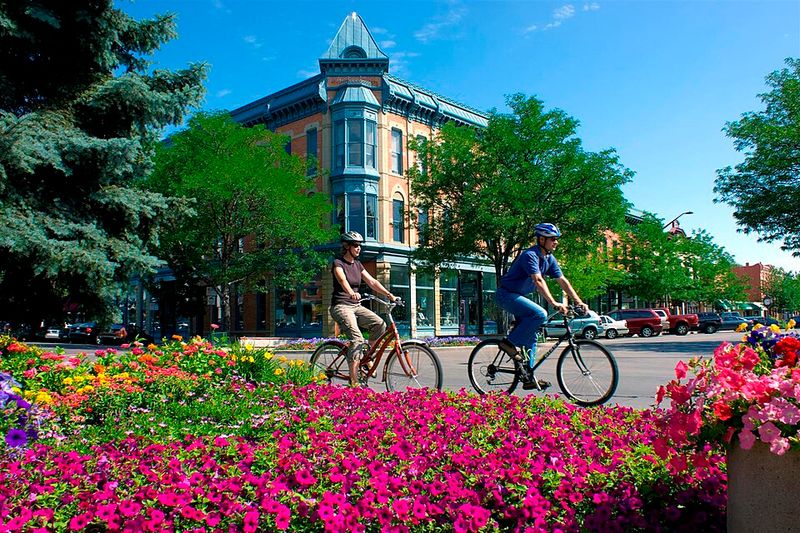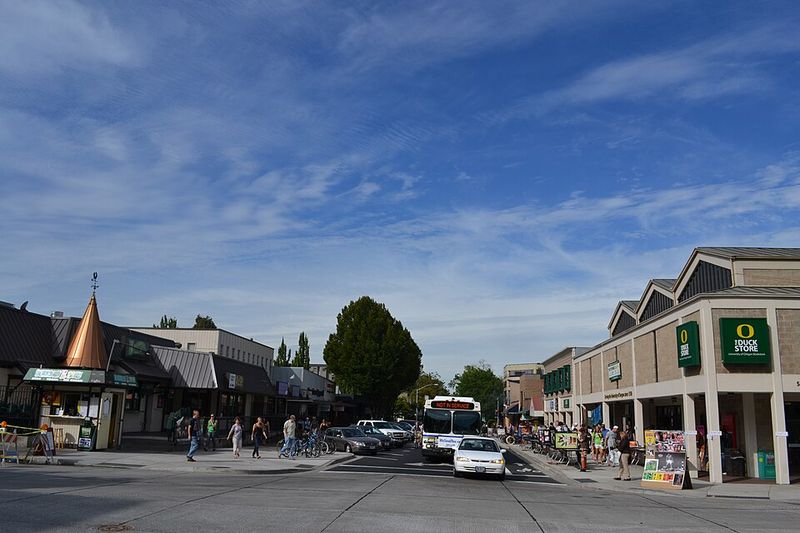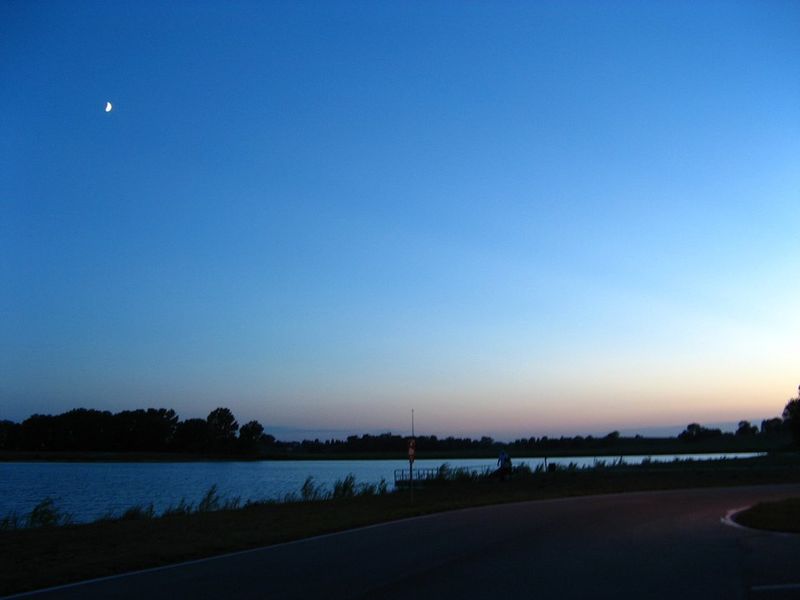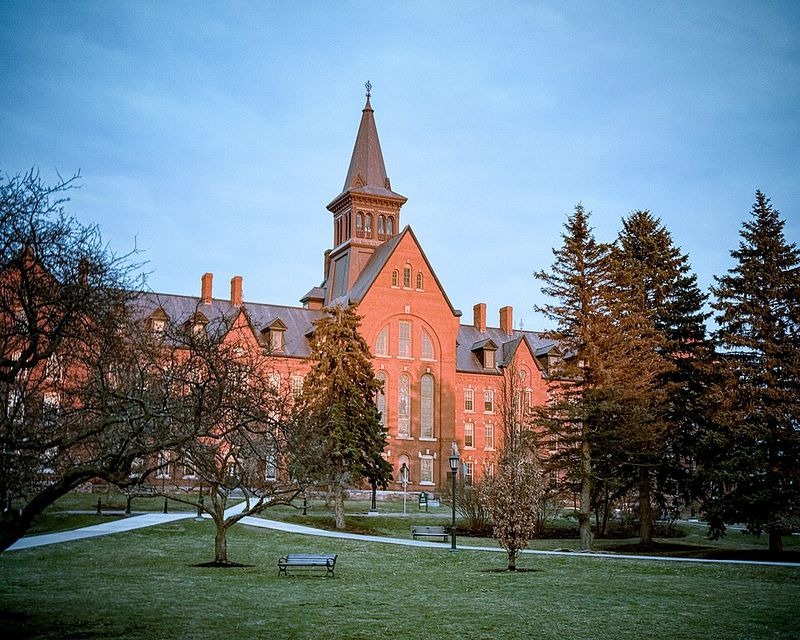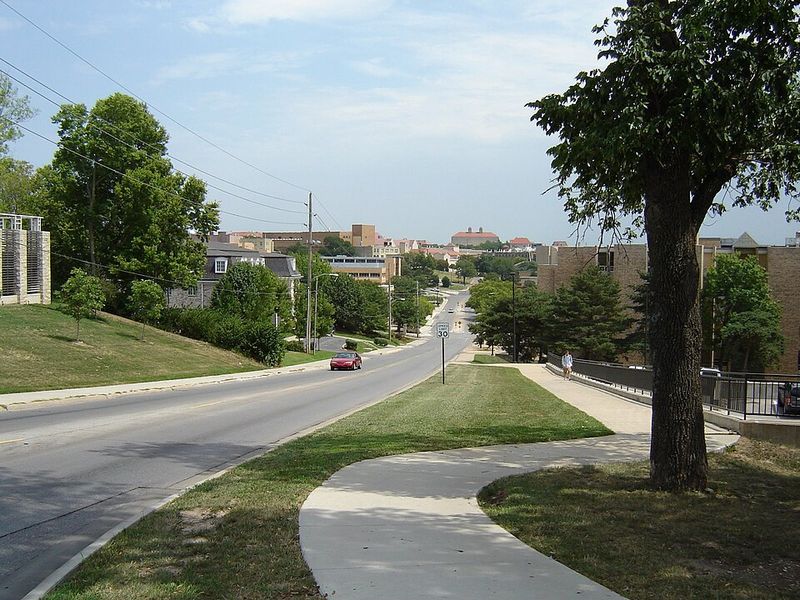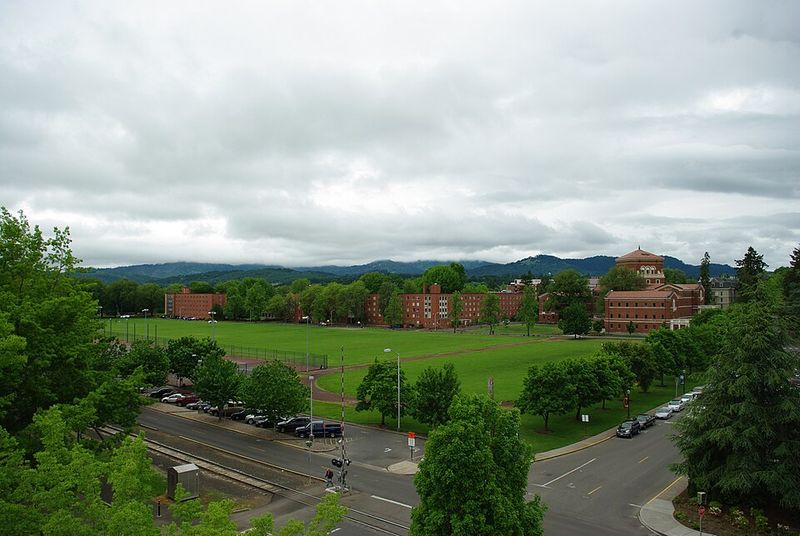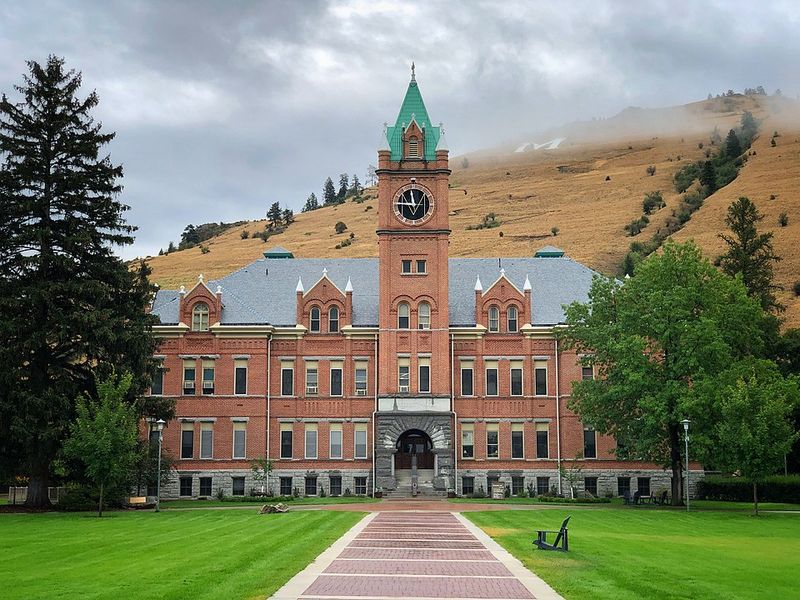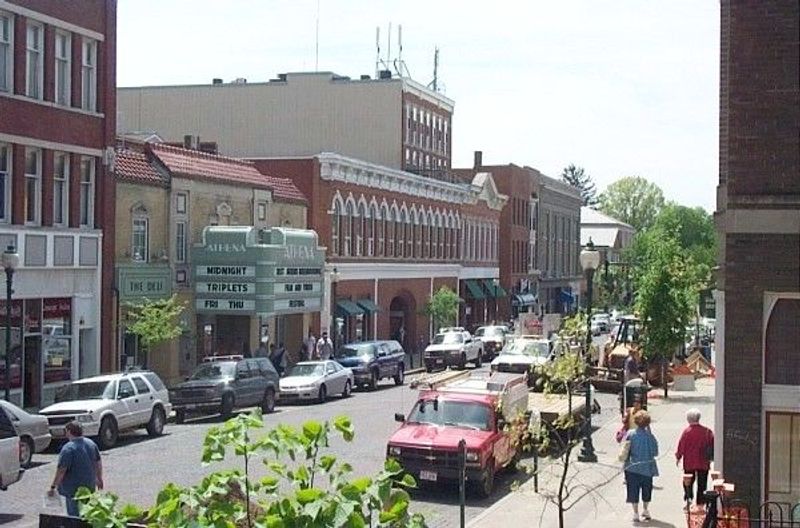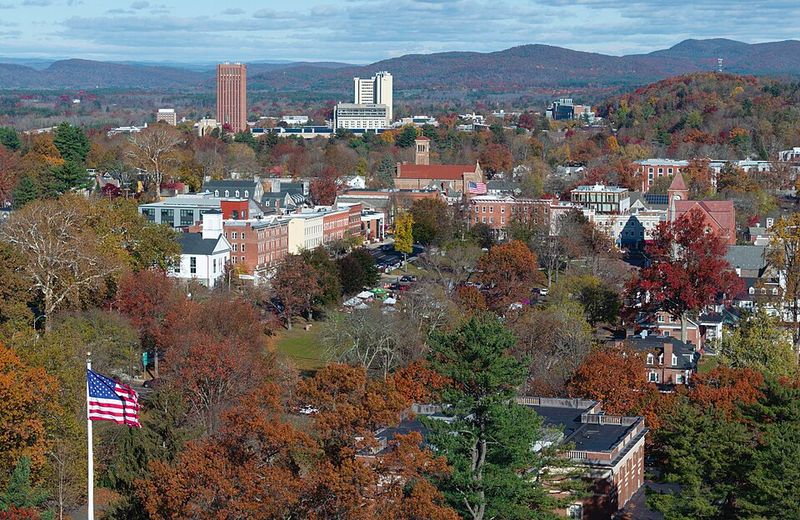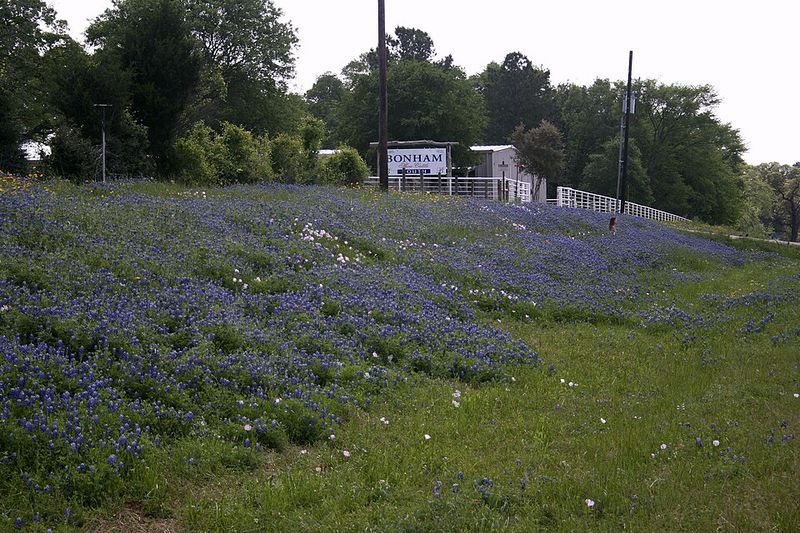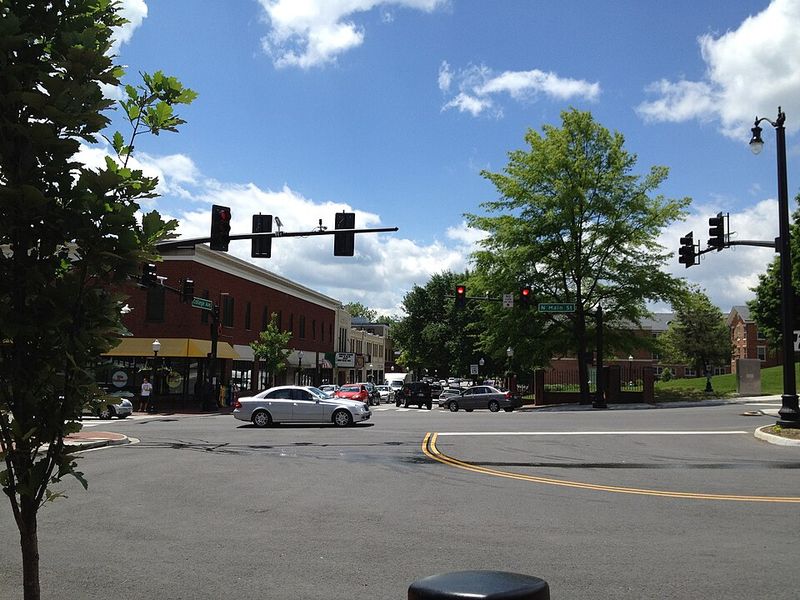Think college towns are only for undergrads and tailgates? Think again. These vibrant communities deliver world-class healthcare, walkable neighborhoods, and lively arts – often at surprisingly affordable prices. From mountain vistas to lakeside trails, each town offers lifelong learning and built-in social life, without big-city hassle. Ready to discover where campus energy meets serene, budget-friendly retirement?
1. Athens, Georgia (University of Georgia)
Athens blends Southern charm with a creative heartbeat that keeps days interesting and nights lively. Retirees appreciate a nationally ranked healthcare system, including specialty care and accessible clinics. Mild winters and leafy neighborhoods make walking and biking enjoyable nearly year-round. The city’s acclaimed music scene, galleries, and festivals deliver culture without the big-city price tag. Farmers’ markets and farm-to-table restaurants keep dining fresh and social. Housing remains relatively affordable, especially compared to coastal metros. Lifelong learners can tap into lectures, performances, and continuing education through UGA. With a supportive community and youthful spirit, Athens turns retirement into a richer, more connected life.
2. Madison, Wisconsin (University of Wisconsin–Madison)
Madison’s lake-dotted landscape sets a naturally calming tone for retirement. The city pairs top-tier hospitals and specialty care with a robust network of bike paths, parks, and waterfront trails. Downtown hums with concerts, theater, and a legendary farmers’ market, while neighborhoods remain friendly and accessible. Winters are brisk, yet the city is well-equipped and active year-round. The university fuels lifelong learning, public lectures, and volunteer opportunities. Cost of living is moderate for the amenities delivered. With safe streets, excellent libraries, and frequent community events, Madison offers retirees a dynamic, health-forward lifestyle in a compact, beautifully planned package.
3. Boulder, Colorado (University of Colorado Boulder)
Boulder rewards active retirees with endless trails, sunlit days, and a wellness-first culture. The Flatirons backdrop turns everyday walks into scenic escapes, while the city’s medical centers offer advanced care. Pearl Street’s outdoor cafes and galleries invite casual socializing and cultural discovery. Though housing can be pricier, quality of life and outdoor access are exceptional. Public transit and bike infrastructure make car-light living feasible. University programming supplies lectures, art, and continuing education. With farmers’ markets, fitness studios, and mindfulness spaces everywhere, Boulder supports healthy aging while keeping curiosity alive. It’s a natural fit for lifelong adventurers.
4. Ann Arbor, Michigan (University of Michigan)
Ann Arbor’s intellectual pulse pairs beautifully with small-city ease. UM Health anchors a powerhouse medical ecosystem with nationally recognized specialties. Culture thrives in museums, theaters, indie bookstores, and a robust music calendar. Walkable neighborhoods and abundant parks keep daily routines pleasant and social. Winters are real, yet the city’s charm and amenities run year-round. Costs mirror its quality—moderate, with diverse housing options. Retirees find deep community through lectures, volunteer programs, and campus events. With safe streets, leafy sidewalks, and excellent transit, Ann Arbor offers a balanced retirement where healthcare, arts, and lifelong learning are close at hand.
5. Gainesville, Florida (University of Florida)
Gainesville combines financial ease with high-caliber healthcare. Florida’s no state income tax stretches retirement budgets, and housing often beats coastal prices. UF Health Shands provides top medical services and specialty care. The city’s greenways, springs, and shaded parks keep outdoor living comfortable even in warm months. Cultural life thrives with university performances, sports, and museums. Neighborhoods feel personable, with independent eateries and farmers’ markets creating a strong local flavor. Walkability is growing, and cycling is popular. With a youthful energy tempered by Southern friendliness, Gainesville offers a sunny, resource-rich landing spot for an affordable, engaging retirement.
6. State College, Pennsylvania (Penn State University)
State College provides small-town warmth with big-university benefits. Penn State enriches the calendar with lectures, performances, and spirited athletics, while the town remains safe and well-kept. Healthcare access is strong, and parks and trails ring the region. Cost of living is reasonable compared to larger metros, and neighborhoods feel neighborly and stable. Winters are manageable, and the community stays active year-round. Dining skews local, with cafes and bakeries around every corner. Public transit and a compact core make errands simple. For retirees seeking clean streets, intellectual stimulation, and a tight-knit feel, State College quietly overdelivers.
7. Charlottesville, Virginia (University of Virginia)
Charlottesville blends history, vineyard-dotted landscapes, and a nationally lauded health system. UVA Health anchors comprehensive care, while the pedestrian-friendly Downtown Mall hosts music, theater, and festivals. The Blue Ridge Mountains invite weekend drives and hiking. Housing varies from historic homes to low-maintenance condos, giving retirees flexibility. Costs are moderate for the region’s quality of life. Food lovers will find farm-to-table dining and regional wines everywhere. The university’s cultural programming and Osher courses make lifelong learning seamless. With a refined yet relaxed pace, Charlottesville offers an elevated retirement that’s rich in nature, arts, and healthcare access.
8. Chapel Hill, North Carolina (UNC–Chapel Hill)
Chapel Hill charms with leafy streets, a mild climate, and serious healthcare credentials. UNC Health delivers advanced treatment options, while close-knit neighborhoods foster daily connection. The town’s compact core makes errands easy, and nearby trails invite gentle outdoor activity. A lively restaurant and music scene keeps evenings interesting without big-city hassle. Housing ranges from cottage neighborhoods to new condos. Costs are moderate for the Triangle region, and amenities abound. Access to Raleigh-Durham expands airports, specialists, and cultural outings. For retirees seeking walkability, medical excellence, and intellectual spark, Chapel Hill feels like a gracious, perpetual campus.
9. Columbia, Missouri (University of Missouri)
Columbia’s sweet spot is affordability paired with strong amenities. The University of Missouri fuels arts, lectures, and spirited sports, while the city’s hospitals provide reliable care. Neighborhoods feel stable and welcoming, with parks woven throughout. Cost of living remains low compared to coastal or mountain destinations, stretching retirement dollars. Trails and greenways support daily activity, and a compact center simplifies errands. Festivals and local music add color without overwhelming crowds. With steady growth and a collegial spirit, Columbia offers retirees a comfortable, engaging home base that’s easy to enjoy—and even easier to afford.
10. Ithaca, New York (Cornell University & Ithaca College)
Ithaca captivates with dramatic gorges, waterfalls, and a sustainably minded culture. Cornell and Ithaca College power lectures, concerts, and continuing education, keeping minds active. The Commons’ pedestrian district offers eclectic dining and independent shops. Winters are snowy, but locals embrace four-season beauty. Healthcare access is solid, and regional specialties are within reach. Housing varies from hillside condos to charming neighborhoods. Farmers’ markets, wineries, and lake views enrich everyday life. For retirees who value nature, intellectual energy, and community-driven living, Ithaca delivers a rare blend of scenic serenity and cultural depth in a compact, walkable setting.
11. Lexington, Kentucky (University of Kentucky)
Lexington marries horse country romance with practical conveniences. Healthcare options are extensive, anchored by UK HealthCare’s major facilities. The cost of living remains attractive, with diverse housing from townhomes to suburban ranches. Downtown’s revitalization brings galleries, theaters, and bourbon-forward dining. Parks and greenways lace the city, encouraging daily movement. Winters are moderate and summers lively. The university hosts lectures and arts programs ideal for lifelong learners. With easy regional travel and a friendly ethos, Lexington offers a graceful retirement choice that balances culture, affordability, and readily accessible medical care.
12. Bloomington, Indiana (Indiana University Bloomington)
Bloomington’s limestone elegance and Hoosier hospitality create an inviting retirement stage. Indiana University energizes the arts with renowned music, theater, and lectures. Cost of living is reasonable, and neighborhoods feel safe and walkable. Healthcare access is strong for a town its size, with larger specialists nearby. The B-Line Trail and city parks promote easy daily exercise. Restaurants showcase international flavors, reflecting the university’s global reach. Winters are manageable and the calendar stays lively year-round. For retirees craving approachable culture, vibrant downtown life, and a community that still feels intimate, Bloomington is a delightful fit.
13. Fort Collins, Colorado (Colorado State University)
Fort Collins offers 300 days of sunshine and a culture that prizes movement and community. Bike paths and parks stitch neighborhoods together, while CSU brings lectures, concerts, and lifelong-learning programs. Healthcare options are robust, and specialists are accessible along the Front Range. Old Town’s breweries, markets, and festivals foster easy socializing. Housing costs have risen, but value remains strong for the amenities. With mild winters, abundant trails, and a relaxed pace, retirees find it simple to stay active and connected. It’s a mountain-adjacent lifestyle without the bustle of bigger Colorado cities.
14. Eugene, Oregon (University of Oregon)
Eugene pairs a progressive spirit with abundant green space and riverfront recreation. The University of Oregon supplies arts, athletics, and public lectures that keep calendars full. Healthcare access is solid, with wellness-oriented services easy to find. The Saturday Market, food carts, and local roasters create a thriving culinary scene. Costs are moderate for the Pacific Northwest, with diverse housing options. Retirees appreciate bike lanes, trails, and a community that values sustainability. With mountains and coast accessible for day trips, Eugene offers a laid-back, intellectually stimulating retirement grounded in nature and neighborly connection.
15. Ames, Iowa (Iowa State University)
Ames excels at livability, safety, and affordability. Iowa State University adds lectures, performances, and Extension programs that encourage lifelong learning. Healthcare is well-regarded, and getting around is stress-free thanks to short commutes and bikeable routes. Neighborhoods are tidy and community-focused, with seasonal festivals that bring residents together. Cost of living and taxes stay comparatively low, stretching retirement savings. Winters are crisp but manageable, and amenities remain accessible year-round. With a steady economy and welcoming vibe, Ames offers retirees a calm, resource-rich platform for an active, budget-friendly lifestyle.
16. Burlington, Vermont (University of Vermont)
Burlington balances small-city sophistication with restorative nature. Lake Champlain and nearby mountains provide four-season beauty and gentle adventure. The University of Vermont anchors healthcare and enriches cultural life with lectures and performances. Church Street’s pedestrian corridor offers boutiques, local fare, and people-watching galore. Housing can be pricier, but quality of life runs high. Bike paths, clean air, and strong community values support healthy aging. Winters are snowy yet vibrant with festivals and cozy cafes. For retirees craving a progressive, outdoorsy lifestyle with excellent care access, Burlington is an appealing northern gem.
17. Lawrence, Kansas (University of Kansas)
Lawrence brims with creativity and community pride. The University of Kansas fuels museums, lectures, and spirited performances, while the town’s costs remain refreshingly low. Healthcare access is strong, with regional specialists nearby. Mass Street’s indie shops and eateries keep daily life interesting and walkable. Parks and trails loop around the city, supporting gentle activity. Neighborhoods are friendly, and civic engagement runs deep. Retirees appreciate the balance of culture, affordability, and small-city ease that Lawrence delivers without pretense. It’s an arts-forward home base that feels both stimulating and comfortable.
18. Corvallis, Oregon (Oregon State University)
Corvallis offers quintessential Pacific Northwest living on a welcoming, manageable scale. Oregon State University brings research energy, sports, and cultural programming. Healthcare is reliable, and larger specialists are within regional reach. Riverfront paths and nearby forests make outdoor time effortless. The community values sustainability, with strong cycling culture and farmers’ markets. Housing is varied, from quiet neighborhoods to low-maintenance condos. Costs are moderate compared to bigger Oregon cities. For retirees seeking nature, learning, and friendly neighborhoods, Corvallis provides a calm, green backdrop for fulfilling daily routines.
19. Missoula, Montana (University of Montana)
Missoula is for retirees who crave wild beauty without sacrificing community. Mountains, rivers, and vast skies frame daily life, while the University of Montana adds lectures, film festivals, and arts. Healthcare access is strong for a smaller city, with regional specialists available. Downtown’s bookstores, breweries, and galleries radiate local character. Housing remains relatively affordable compared to larger mountain markets. Trails and river paths encourage active days, and winters reward with quiet charm. Missoula blends independence with inclusivity, creating an adventurous retirement that still feels neighborly and grounded.
20. Athens, Ohio (Ohio University)
Athens, Ohio delivers small-town intimacy with collegiate spark. Ohio University keeps cultural calendars full with performances, talks, and spirited traditions. The Hocking River bikeway and nearby parks foster daily movement and scenic escapes. Healthcare is dependable locally, with larger systems within a reasonable drive. Cost of living is notably friendly, and housing options suit varied budgets. Farmers’ markets, craft breweries, and festivals strengthen social ties. With gentle hills and a walkable center, Athens offers retirees an affordable, culturally rich lifestyle wrapped in Appalachian charm.
21. Amherst, Massachusetts (UMass Amherst & Five College Consortium)
Amherst is tailor-made for lifelong learners. The Five College Consortium multiplies lectures, museums, and continuing-education options, while the town retains a safe, small-scale feel. Healthcare access is strong regionally, with specialists nearby. Walkable streets, farm stands, and cafes keep daily life nourishing and social. Winters are snowy, yet the cultural calendar hardly slows. Housing spans historic homes to low-maintenance condos. With libraries, music, and thought-provoking events at every turn, Amherst offers a bookish, community-focused retirement that feels both enriching and grounded.
22. College Station, Texas (Texas A&M University)
College Station pairs sunny weather with practical perks for retirees. Texas’s lack of state income tax and generally affordable housing stretch budgets. Texas A&M fuels lectures, sports, and community programs that keep calendars lively. Healthcare options are strong, including major medical centers and specialists. The city’s layout makes driving simple, while new developments add parks and trails. Dining spans classic barbecue to international fare. With a welcoming culture and steady growth, College Station delivers a comfortable, cost-aware retirement anchored by a major university.
23. Blacksburg, Virginia (Virginia Tech)
Blacksburg offers mountain serenity with university-driven vitality. Virginia Tech enriches culture through performances, lectures, and engineering-minded maker spaces. The town is walkable, safe, and threaded with trails, fostering daily activity. Healthcare access is strong locally, with regional hubs nearby. Housing remains relatively affordable, especially compared to larger East Coast markets. Community events, farmer’s markets, and tech-fueled entrepreneurship add modern energy. With scenic surroundings and a thoughtful pace, Blacksburg is a quietly stellar choice for retirees who value learning, nature, and neighborly connection.
